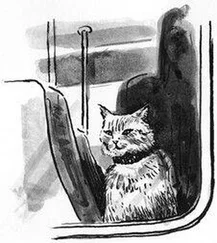“And who decides if a woman is “worthy"?” Garp asked. “Oh boy, Mom!” he cried out. “I could wring your neck for this shit!”
“ You decide,” Roberta said. “ That's what will make you think.”
“How about you? ” Garp asked. “This is your kind of thing, Roberta.”
Roberta was clearly torn. She shared with Jenny Fields the desire to educate Garp and other men concerning the legitimacy and complexity of women's needs. She also thought Garp would be rather terrible at this, and she knew she would do it very well.
“We'll do it together,” Roberta said. “That is, you're in charge, but I'll advise you. I'll tell you when I think you're making a mistake.”
“Roberta,” Garp said, “you're always telling me I'm making a mistake.”
Roberta, at her most flirtatious, kissed him on the lips and clubbed him on the shoulder—in both cases, so hard that he winced.
“Jesus,” Garp said.
“The Fields Foundation!” Roberta cried. “It's going to be wonderful.”
Thus was friction kept in the life of T. S. Garp, who without friction of some kind would probably have lost his senses and his grip upon the world. It was friction that kept Garp alive, when he wasn't writing; Roberta Muldoon and the Fields Foundation would provide him with friction, at the very least.
Roberta became the in-residence administrator of the Fields Foundation at Dog's Head Harbor; the house became, all at once, a writers' colony, a recovery center, and a birth-advisory clinic—and the few well-lit garret rooms provided light and solitude for painters. Once women knew that there was a Fields Foundation, there were many women who wondered who was eligible for aid. Garp wondered, too. All applicants wrote Roberta, who assembled a small staff of women who alternately liked and disliked Garp—but always argued with him. Together, twice a month, Roberta and her Board of Trustees would assemble in Garp's grouchy presence and choose among the applicants.
In good weather they sat in the balmy side-porch room of the Dog's Head Harbor estate, although Garp increasingly refused to go there. “All the weirdos-in-residence,” Garp told Roberta. “They remind me of other times.” So then they met at Steering, in the Steering family mansion, the wrestling coach's home, where Garp felt slightly more comfortable in the company of these fierce women.
He would have felt more comfortable, no doubt, to have met them all in the wrestling room. Though even there, Garp knew perfectly well, the former Robert Muldoon would have made Garp struggle for his every point.
Applicant No. 1,048 was named Charlie Pulaski.
“I thought they had to be women ,” Garp said. “I thought there was at least one firm criterion.”
“Charlie Pulaski is a woman,” Roberta told Garp. “She's just always been called Charlie.”
“I should say that was enough to disqualify her,” someone said. It was Marcia Fox—a lean, spare poet with whom Garp frequently crossed swords, although he admired her poems. He could never be that economical.
“What does Charlie Pulaski want? ” Garp asked, by rote. Some of the applicants only wanted money; some of them wanted to live at Dog's Head Harbor for a while. Some of them wanted lots of money and a room at Dog's Head Harbor, forever.
“She just wants money,” Roberta said.
“To change her name?” asked Marcia Fox.
“She wants to quit her job and write a book,” Roberta said.
“Oh boy,” said Garp.
“Advise her to keep her job,” said Marcia Fox; she was one of those writers who resented other writers, and would-be writers.
“Marcia even resents dead writers,” Garp told Roberta.
But Marcia and Garp both read a manuscript submitted by Ms. Charlie Pulaski, and they agreed that she should hold on to whatever job she could get.
Applicant No. 1,073, an associate professor of microbiology, wanted time off from her job to write a book, too.
“A novel?” Garp asked.
“Studies in molecular virology,” said Dr. Joan Axe; she was on leave from the Duke University Medical Center to do some research of her own. When Garp asked her what it was, she had told him, mysteriously, that she was interested in “the unseen diseases of the bloodstream.”
Applicant No. 1,081 had an uninsured husband who was killed in a plane crash. She had three children under the age of five and she needed fifteen more semester hours to complete her M.A. degree, in French. She wanted to go back to school, get the degree, and find a decent job; she wanted money for this—and rooms enough for her children, and for a baby-sitter, at Dog's Head Harbor.
The Board of Trustees unanimously decided to award the woman sufficient money to complete her degree and to pay a live-in baby-sitter; but the children, the babysitter, and the woman would all have to live wherever the woman chose to complete her degree. Dog's Head Harbor was not for children and baby-sitters. There were women there who would go crazy upon the sight or sound of a single child. There were women there whose lives had been made miserable by baby-sitters.
That was an easy one to decide.
No. 1,088 caused some problems. She was the divorced wife of the man who had killed Jenny Fields. She had three children, one of whom was in a reform school for preteens, and her child-support payments had stopped when her husband, Jenny Fields' assassin, was shot by a barrage from the New Hampshire State Police and some other hunters with guns who had been cruising the parking lot.
The deceased, Kenny Truckenmiller, had been divorced less than a year. He'd told friends that the child support was breaking his ass; he said that women's lib had screwed up his wife so much that she divorced him. The lawyer who got the job done, in favor of Mrs. Truckenmiller, was a New York divorcee. Kenny Truckenmiller had beaten his wife at least twice weekly for almost thirteen years, and he had physically and mentally abused each of his three children on several occasions. But Mrs. Truckenmiller had not known enough about herself, or what rights she might possibly have, until she read A Sexual Suspect , the autobiography of Jenny Fields. That started her thinking that perhaps the suffering of her weekly beatings, and the abuse of her children, was actually Kenny Truckenmiller's fault; for thirteen years she had thought it was her problem, and her “lot in life.”
Kenny Truckenmiller had blamed the women's movement for the self-education of his wife. Mrs. Truckenmiller had always been self-employed, a “hair stylist” in the town of North Mountain, New Hampshire. She went right on being a hair stylist when Kenny was forced, by the court, to move out of her house. But now that Kenny was no longer driving a truck for the town, Mrs Truckenmiller found the support of her family difficult by hair styling alone. She wrote in her nearly illegible application that she had been forced to compromise herself “to make ends meet,” and that she did not care to repeat the act of compromising herself in the future.
Mrs. Truckenmiller, who never once referred to herself as having a first name, realized that the loathing for her husband was so great as to prejudice the board against her. She would understand, she wrote, if they chose to ignore her.
John Wolf, who was (against his will) an honorary member of the board—and valued for his shrewd financial head—said immediately that nothing could be better or wider publicity for the Fields Foundation than awarding “this unfortunate relation of Jenny's killer” what she asked for. It would be instant news; it would pay for itself, John Wolf decided, in that it would surely gain the foundation untold sums in gift donations.
Читать дальше












